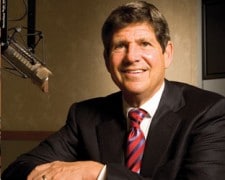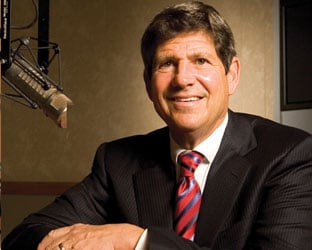 Emmis President/CEO Jeff Smulyan is upbeat about the heightened prospects for an FM chip on cell phones and the bright future of the radio business in general.
Emmis President/CEO Jeff Smulyan is upbeat about the heightened prospects for an FM chip on cell phones and the bright future of the radio business in general.
He noted in no uncertain terms that there has this has been a significant quarter on the FM chip/cell phone project. He noted that Emmis has been active on Capitol Hill, has been in talks with carriers, and will visit with the FCC on the topic next week. Smulyan repeated that the US should have existing chips turned on as they are in the rest of the world, even if the only reason is for public safety concerns.
Responding later to a question on the topic, Smulyan stated his belief that an FM presence on cell phones will increase total listening by 10%-15%. He said listening to radio on a phone is not streaming, and thus avoids streaming charges, and predicted that streaming charges are going to be a huge problem for cellular providers going forward, a problem with the availability of radio could alleviate to some extent.
(Of course, that could result in a loss of potential income for the providers, which is why Smulyan said the project is currently being resisted by the wireless industry during his recent testimony in Congress.)
Emmis is going to sit with financial types to discuss revamping its debt financing package with an eye to taking opportunistic advantage of its improved leverage profile.
Smulyan said Emmis is looking forward to upcoming court challenges with disgruntled preferred shareholders – it expects to come out of the litigation with both judicial clarification and victory. Smulyan also noted that “going private isn’t in the cards.”
Smulyan applauded Clear Channel’s Big Machine Records, and commented that it will likely need a lot of industry participation and NAB leadership to move forward. He said it never hurts to try to solve problems via the negotiation process.
Super pacs and super funding by both presidential candidates may well contribute to a political income trickle-down effect for radio, in Smulyan’s estimation.
In closing, Smulyan stated that he is bullish on the future of the business, but is nevertheless frustrated that the medium doesn’t always get the credit it deserves. He said radio will benefit as the cachet currently enjoyed by new media, which he believes is overblown, starts to come in line with reality – when that happens, radio’s stock will rise.





